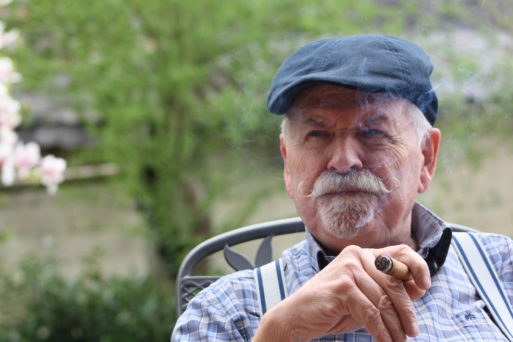The land of the Eiffel Tower, the Lourve, and the Cathedral of Notre Dame is about to add another landmark. Construction of Village Landais Alzheimer in Dax, France began in June. When completed in 2019, it will be the world’s second Alzheimer’s village, inspired by a similar site, The Hogeweyk, in Weesp, Netherlands.

The First Alzheimer’s Village in the Netherlands
In 2009 The Hogeweyk opened its doors to 152 seniors afflicted with dementia. Within the 23 houses of this ground-breaking Alzheimer’s village, residents manage their own households together with a 24/7 team of staff members. Washing, cooking and other daily chores are performed every day in all of the houses, each of which reflects a style that is familiar to the six or seven people who live in each residence.
Like Hogeweyk, Village Landais Alzheimer in Southwestern France will differ from a traditional residential complex or nursing home in that every resident (except the researchers, staff and volunteers) will have Alzheimer’s. The village will be built to resemble the traditional towns and architecture of its locale in an attempt to further soothe its projected 120 patients.
 Village Landais Alzheimer will resemble a medieval fortress town typical of the area. Houses will be grouped in blocks of four around a courtyard, with each area having a distinct identity. Landscaped walkways will connect the areas, with the paths providing sensory stimulation and a way for the residents to interact with nature. There will also be a supermarket, hairdresser, library and gym, among other facilities.
Village Landais Alzheimer will resemble a medieval fortress town typical of the area. Houses will be grouped in blocks of four around a courtyard, with each area having a distinct identity. Landscaped walkways will connect the areas, with the paths providing sensory stimulation and a way for the residents to interact with nature. There will also be a supermarket, hairdresser, library and gym, among other facilities.
More Healthful Environment
The idea is that the increase in freedom will also increase happiness and lessen the need for medication. Residents will not be able to leave the site, and will be cared for by medical staff dressed in ordinary street clothes.
In an interview in My Modern Met — an architectural magazine — neurologist Jean-François Dartigues says that by maintaining a typical lifestyle, patients will continue their normal social routines and exercise their brains. “They will find a form of integrity, social, human. They will do their shopping, go to the hairdresser, the bistro, the restaurant, the theater. They will have fun. What constitutes a form of extraordinary therapy.”
Why Only Two?
Shortly after CNN featured Netherlands’ Hogeweyk in a 25 minute World’s Untold Stories segment in 2013, a SevenPonds blog article raised the question: With the medical and health benefits of the Alzheimer’s village of Hogeweyk in The Netherlands, why doesn’t every country implement its own dementia village treatment center?

Credit: maxpixel.net
The answer is most often connected with the high cost of building and maintaining an Alzheimer’s village. Much of the cost of The Hogeweyk is covered by government-subsidized universal healthcare programs. France’s health care is considered one of the best in the world. Recently President Emmanuel Macron unveiled plans to make it more efficient and sustainable for the next 50 years.
Though the U.S. seems to be headed in the right direction with Ohio-based Lantern assisted-living communities’ efforts to “simulate” a homier atmosphere, the Netherlands — and now France — recognize that, ideally, it takes an Alzheimer’s village to best serve the quality of those lives afflicted with severe dementia.
Proponents of Alzheimer’s villages say that, compared to those in traditional nursing homes, residents are more active, require less medication, and are quite simply happier. Allowing them to live in a near-normal village helps “maintain (residents) participation in social life,” said professor Jean-François Dartigues, neurologist at the Pellegrin university hospital in Bordeaux.
Once in operation, Village Landais Alzheimer will seek scientific evidence to back up these claims. Young researchers will “cohabit” with the 120 residents, along with 100 live-in carers and 120 volunteers who will stage activities. These researchers will conduct a comparative study with traditional nursing homes and examine “the impact of new therapeutic approaches on patients, carers and medical staff,” according to Dartigues.

 France Is on the Forefront of Dementia Care as it Builds an Alzheimer’s Village
France Is on the Forefront of Dementia Care as it Builds an Alzheimer’s Village


 “Other Side” Documentary Directed by Carter Oakley and Heather Hogan
“Other Side” Documentary Directed by Carter Oakley and Heather Hogan
















